
Alphabetical Menu
Chronological Menu
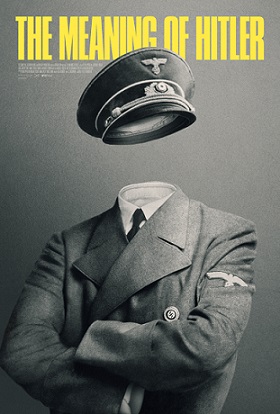
The vital and haunting doc, The Meaning of Hitler, based on the book by Sebastian Haffner, asks tough questions about one of the most evil people in history, Adolf Hitler, with no easy or pleasant answers. How does anyone even begin to understand how the mind of Adolf Hitler worked? How could anyone humanize someone who was so dehumanizing? How can any explain someone who committed genocide? What does Hitler mean in the world of today? Co-directors Petra Epperlein and Michael Tucker interview a variety of experts ranging from historians to psychologists. They bravely and wisely add balance to the doc through an interview with an Holocaust denier, David Irving. What he says sound horrifying, but he's not the only Holocaust denier out there and it's important to shed light on them and disprove them like this doc does so successfully. To try to grasp Hitler better, the filmmakers begin by looking into his childhood by visiting the town where he grew up in. As it turns out, very little is known about Hitler's childhood because he destroyed as much evidence as he could from it. Someone who had a healthy childhood would probably not go to great lengths to do that. You'll not only learn how and why he rose to power, but also he radicalized and brainwashed many people. He was a master manipulator who had plenty of enablers. He had no shame in lying, not surprisingly, and lied repeatedly. Psychologists have thrown many mental and personality illnesses at Hitler to try to diagnose him without him being their patient. Interestingly, The Meaning of Hitler would make for a great double feature with #Unfit, a documentary about Trump that compared him to Hitler with the help of psychologists who expressed how much can be learned from someone if you observe their behavior---even Trump if was never their patient. As one interview subject in The Meaning of Hitler states at the very end of the doc, the problem with Hitler is not that he's inhuman, but that he's human. That's a very loaded and pointed statement to make, but it hits the nail right on the head without beating around the bush. Hitler not only dehumanized others, but probably himself as well in spite of the fact that he's human. He can't change the fact that he's human and no one else can either. Trying to humanize him and to explain him doesn't excuse him at all, but it's terrifying to know that many of his bad personality traits are the extreme versions of bad personality traits of others like Trump, white nationals, and holocaust deniers like David Irving, who are cut from Hitler's cloth. At a running time of only 1 hour and 32 minutes, The Meaning of Hitler is a brave, provocative and alarming documentary. It opens at IFC Center via IFC Films. Crime Story 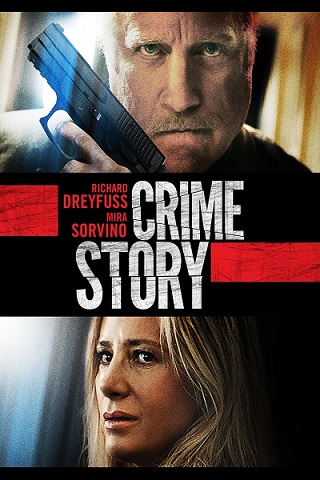
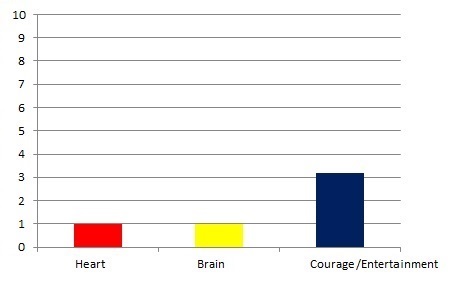 Free Guy 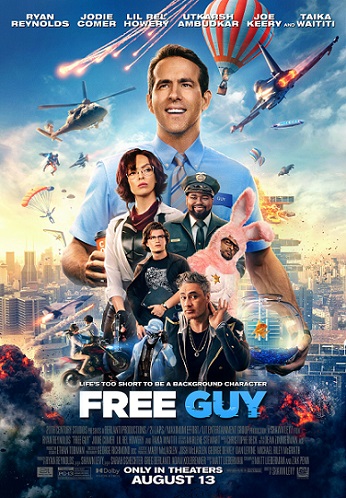 Guy (Ryan Reynolds) wakes up every day to the same routine. He gets dressed, makes coffee, watches the local news before he heads out the door and crosses paths with Molotovgirl (Jodie Comer), a girl on a bike, while on his way to work as bank teller where he chats up with a security guard (Lil Rel Howery). One day, after a bank robbery, he finds sunglasses with special powers and learns that he's merely a non-player character (NPC) in a video game called Free City. Antwan (Taika Waititi), the tyrannical owner of the video game company Soonami, has plans to get rid of Guy in Free City 2, so it's up to a programmer, Millie (Jodie Comer), the human behind the avatar Molotovgirl, and Keys (Joe Kerry), her programming friend working at Soonami, to warn Guy and stop Antwan. The less you read about Free Guy's plot the better because it has many surprises up its sleeve. Even the synopsis above doesn't do it any justice nor does it spoil the big and small surprises. It's just the first act. The screenplay by Matt Lieberman and Zak Penn brims with wit and tongue-in-cheek humor. If you're a gamer or a coder, you'll be in for a treat because there are some inside jokes that might go over the heads of people who aren't familiar with gaming or coding. Fortunately, there's just enough exposition about the important gaming terms used by the characters so that non-gamers/coders would still be able to follow what's going on. Comparing the film to The Truman Show would be apt as well as to Tron, but, tonally, it's more along the lines of Scott Pilgrim vs. the World. The blend of outrageous comedy, action and just plain zaniness works well---certainly better than in the painfully unfunny, tedious and asinine The Suicide Squad. Tedium doesn't set in at any point during Free Guy. Some of it is actually pretty brilliant and has some wildly original ideas. At its core, though, it has a warm, beating heart which makes it all the more refreshing and rare, especially for a Hollywood blockbuster. With a less sensitive screenplay, the more tender scenes would've derailed the film with schmaltz, but they're ephemeral and never veer toward schmaltz. Ryan Reynolds seems to be having as much fun with his role as Guy as he did in Deadpool and Hitman's Wife's Bodyguard. He's great in these kinds of roles because he has great comedic timing when it comes to the physical comedy and the funny one-liners. He also has charisma and handles the more dramatic scenes convincingly. Taika Waititi is hilarious and nails the campiness of his role. He's very well-cast as are the rest of the actors and actresses, especially Lil Rel Howery, Jodie Comer and Joe Kerry. They each have their own moment to shine. Another actor has a very bizarre, but hysterically funny cameo which won't be spoiled here, but it will surely be referred to by those who've seen the film. Also, the soundtrack is quite lively with songs like "Fantasy" by Mariah Carey with very fitting lyrics. Although the running time does clock near the 2 hour mark at 1 hour and 55 minutes, it doesn't overstay its welcome. Free Guy is wildly entertaining, clever and refreshingly witty. It's destined to become a cult classic. 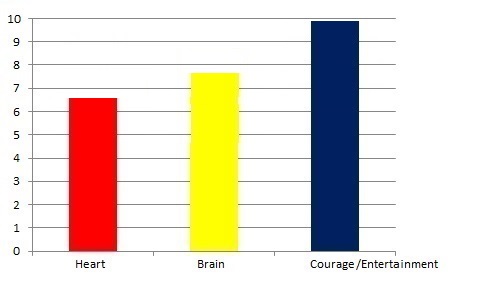 Raging Fire 
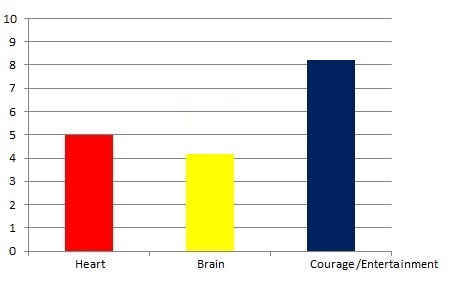 Respect 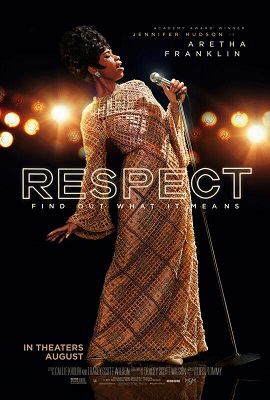 After an abusive childhood with her domineering reverend father (Forest Whitaker) and singing in his church's choir, Aretha Franklin (Jennifer Hudson) begins her career as a singer. She marries Ted White (Marlon Wayans), despite her father's disapproval, and rises to fame with the help of record producers, John Hammond (Tate Donovan) and Jerry Wexler (Marc Maron). The screenplay by Tracey Scott Wilson follows the life and career of Aretha Franklin chronologically, although it shies away from the darker aspects of Franklin's life, like how she struggled with sexual abuse during her childhood. The sexual abuse is implied and referred to briefly. There's more emphasis on her relationship with her father and the physically abusive relationship with her and her husband, Ted. Her struggles to deal with those relationships along with her childhood abuse that haunts her later on and allows for the film to get slightly deeper into Aretha's heart, mind and soul. The linear approach to telling her story makes it conventional, although there's nothing inherently wrong with conventionality except that it makes it harder for the screenplay to escape mediocrity. The filmmakers are very fortunate to have such an interesting subject as the center of this biopic because it's Aretha's innate struggles and emotional pains that make her all the more human and, above all, relatable. They never forget that she's a human being, not just a famous and talented singer. The film soars the most during the exhilarating scenes when Aretha sings, and, fortunately, there are plenty of those for the audience to enjoy on an emotional level. Jennifer Hudson gives one of the best performances of her career as Aretha Franklin. She's just as mesmerizing as she was in Dreamgirls and helps to make the film a captivating experience. Most of Respect's poignancy comes from her performance, not from the screenplay, so it's a testament to Hudson's talent and skills as an actress that she's able to rise above the screenplay's mediocrity. Forest Whitaker and Marc Maron make the most out of their brief scenes. Some of the editing does feel a little abrupt as the film flashes forward from one part of Aretha's life to another, but that's merely a minor flaw that doesn't make the film any less entertaining. Much like My Week With Marilyn, Respect is a mediocre, conventional biopic that's lifted up by both the music and strong performances. At a running time of 2 hours and 25 minutes, Respect is captivating and heartfelt. Jennifer Hudson deserves an Oscar. 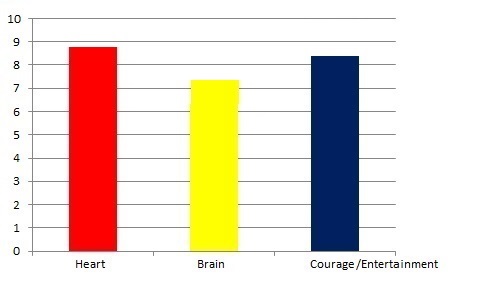 |